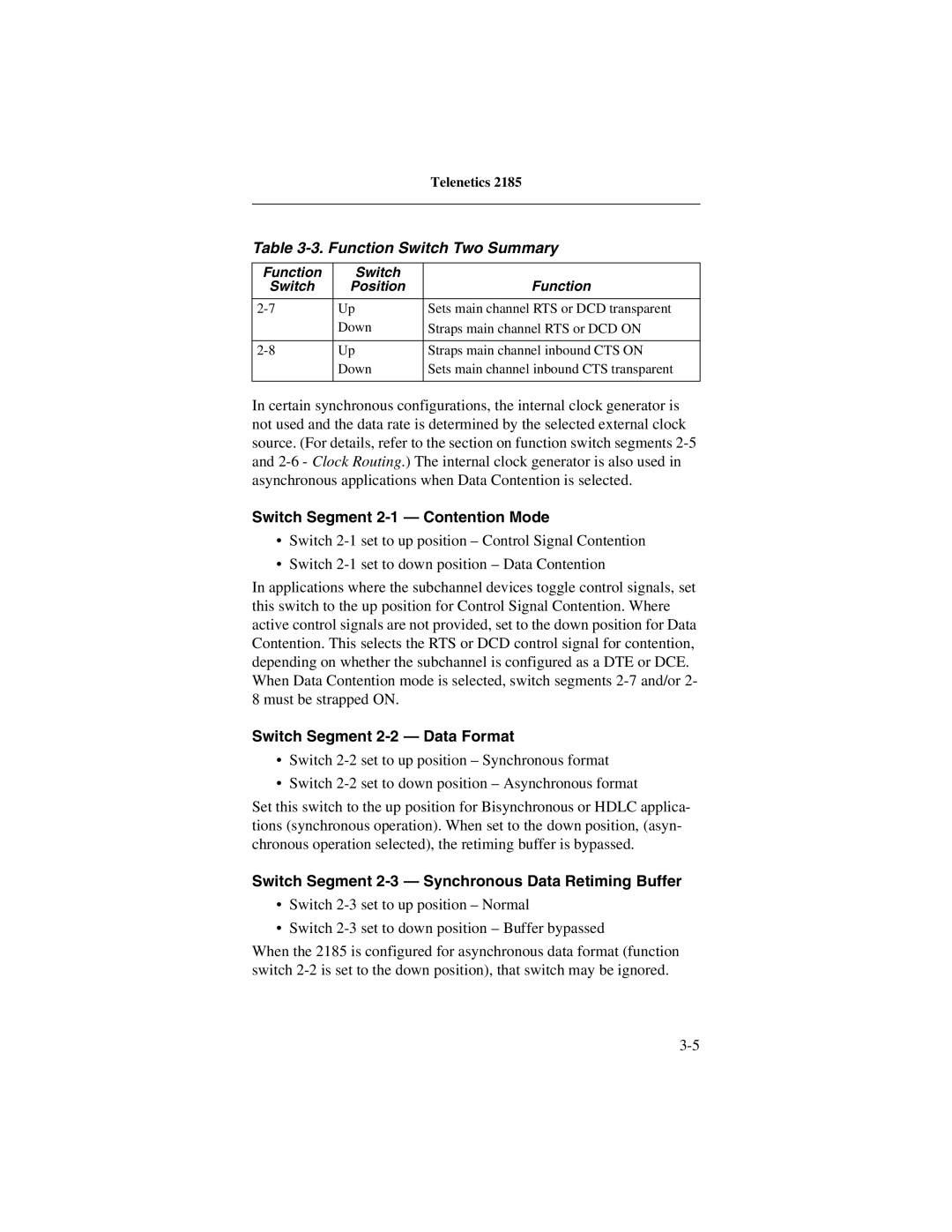|
| Telenetics 2185 |
|
|
|
Table | ||
|
|
|
Function | Switch |
|
Switch | Position | Function |
|
|
|
Up | Sets main channel RTS or DCD transparent | |
| Down | Straps main channel RTS or DCD ON |
|
|
|
Up | Straps main channel inbound CTS ON | |
| Down | Sets main channel inbound CTS transparent |
|
|
|
In certain synchronous configurations, the internal clock generator is not used and the data rate is determined by the selected external clock source. (For details, refer to the section on function switch segments
Switch Segment 2-1 — Contention Mode
•Switch
•Switch
In applications where the subchannel devices toggle control signals, set this switch to the up position for Control Signal Contention. Where active control signals are not provided, set to the down position for Data Contention. This selects the RTS or DCD control signal for contention, depending on whether the subchannel is configured as a DTE or DCE. When Data Contention mode is selected, switch segments
Switch Segment 2-2 — Data Format
•Switch
•Switch
Set this switch to the up position for Bisynchronous or HDLC applica- tions (synchronous operation). When set to the down position, (asyn- chronous operation selected), the retiming buffer is bypassed.
Switch Segment 2-3 — Synchronous Data Retiming Buffer
•Switch
•Switch
When the 2185 is configured for asynchronous data format (function switch
